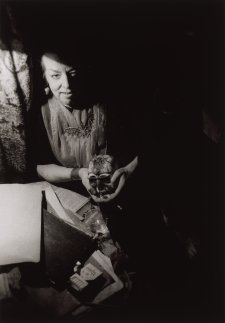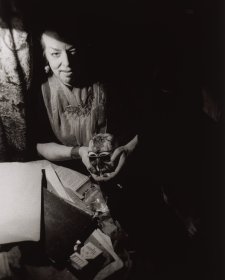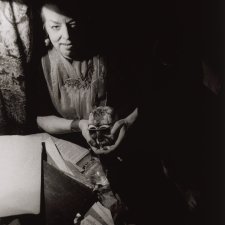- About us
- Support the Gallery
- Venue hire
- Publications
- Research library
- Organisation chart
- Employment
- Contact us
- Make a booking
- Onsite programs
- Online programs
- School visit information
- Learning resources
- Little Darlings
- Professional learning
Ron Barassi AM (1936‒2023) is among the most celebrated individuals in the history of Australian Rules football. A descendant of Swiss-Italian prospectors who had come to the Victoria during the gold rush, Barassi was born in Castlemaine and spent his early childhood in nearby Guildford. He was five years old when his father died while serving with the Australian Army at Tobruk. Afterwards, a group associated with the Melbourne Football Club, who Barassi senior had played for, pledged to help support his widow and son, with the club later successfully lobbying for an amendment to drafting rules so that Barassi junior could play for the Demons also. Barassi was 17 when he debuted for the Demons against Footscray in 1953 and went on to play 204 games over his 11 seasons with the club. Too short for a ruckman but too tall for a rover, he helped create the ruck-rover position instead and became renowned for his brilliant kicking and his nuggety, intense style of play. He was a member of the flag-winning Demons teams of 1955, 1956, 1957 and 1959; and captained the club to further premiership victories in 1960 and 1964. Enticed by a lucrative contract to join the Carlton Football Club as captain-coach, Barassi left the Demons in 1965 and in 1968 led the Blues to their first premiership win in 21 years. Carlton took out the flag for the second time under Barassi’s direction with a comeback win against Collingwood in the 1970 grand final. Barassi left Carlton in 1971 with a record of 99 wins from 147 games as senior coach. Two years later, he joined the North Melbourne Kangaroos, guiding the team that won the wooden spoon in his first season there to the premierships of 1975 and 1977. Barassi returned to Melbourne in 1981 for a four-year stint there as coach and retired from football in 1995 after two seasons coaching the Sydney Swans. As legendary for his humility as for his footballing nous and prowess, Barassi was twice voted Melbourne’s best and fairest, thrice selected for the All Australian side, and was named in the AFL Team of the Century. He was inducted into the Sport Australia Hall of Fame in 1987 and in 1996 he became the AFL’s first officially designated Legend.
Purchased 2006
© Rennie Ellis Photographic Archive
www.RennieEllis.com.au



On one level The Companion talks about the most famous and frontline Australians, but on another it tells us about ourselves.



Bon Scott and Angus Young photographed by Rennie Ellis are part of a display celebrating summer and images of the shirtless male.



Rennie Ellis photographs the self-proclaimed 'Witch of Kings Cross'.